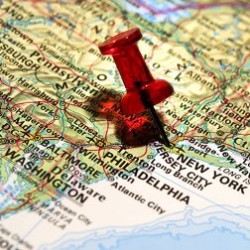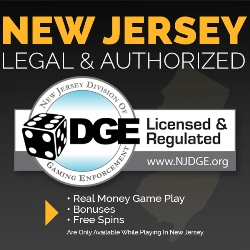New Jersey Geolocation Tech Now Boasts 95% Success Rate

After three months, New Jersey‘s nascent online gaming industry has generated $27.2 million in revenues, which is shaping up to be a mere tenth of the original $1.1 billion in annual revenues projected by Governor Christie ahead of legislation. Nevertheless, the market has also suffered from a number of technical problems, not least geo-location issues, which have thwarted attempts to provide a smooth, user-friendly poker environment for the players.
The situation may be improving, however, after New Jersey regulators widened their strictly enforced geolocation buffer original designed to ensure those players located outside the state would not be allowed to gamble at any of its regulated internet gambling websites. Early indications show that the new, relaxed policy is already having a positive affect, with Brian Mattingley, Chief Executive of 888 Holdings, commenting:
“By allowing us a little bit more flexibility and easing the tolerance in that distance, it made it significantly better in the second and third month.”
Geolocation problems near state borders
Until recently, the New Jersey Division of Gaming Enforcement had demanded strict adherence to its geolocation rules, but technology issues also meant many online players legitimately located inside but near one of the state boundaries would often be counted as part of the unusually large buffer zone and locked out. Unfortunately, this has ended up affecting much of the population of New Jersey, considering the hinterlands of the New York City Metropolitan Area and the Philadelphia Metropolitan Area both fall into the troubled hotspots.
Although the problematic situation has been mirrored in Nevada, where online gaming operators, such as Ultimate Gaming, have set up its buffer zone a mile and a half from the state border, New Jersey’s smaller but more densely populated geography means such a large ring fence could potentially cut off a vast proportion of the population.
New technologies help resolve geolocation troubles
Naturally, the situation has become untenable and has lead many analysts to believe geolocation issues have been instrumental in causing fewer than anticipated signups at licensed online gambling sites. As of the end of February, there were 248,241 active online gambling accounts created in New Jersey.
A more relaxed approach to its geolocation buffer, as well as new technologies, however, have meant a huge reduction in false negatives which would otherwise have indicated a player located close inside the New Jersey border was trying to play from New York State or Pennsylvania. All indications show that the enhanced systems used are significantly more accurate and reliable than its predecessors, with GeoComply claiming a 95% success rate. The geolocation company is relied upon by 10 out of New Jersey’s 11 igaming sites, and as GeoComply CEO Anna Sainsbury, explained recently:
“We’re incredibly pleased with these results, given the benchmark in previous states that went live is significantly lower than that. However, we know that is little comfort to the 5% that still have problems.”
Online Processing Still A Major Issue
Analysts believe that as New Jersey smooths out its igaming industry’s initial ‘teething problems’, including geolocation issues, the state’s gambling operators will then experience a welcome boost to their online traffic and revenues. In the meantime, online gambling is still unlikely to reach its full potential until major banks stop blocking online gaming transactions.
Up until now, major financial institutions such as American Express, J.P. Morgan Chase, and Wells Fargo have all refused to permit US online gambling credit and debit card transactions, legal or otherwise. Their line of reasoning ranges from their own unique interpretation of the UIGEA that excludes all forms of gambling, to citing the fact gamblers historically account for a higher proportion of credit losses and customer disputes. As a result, the online gambling industry is likely to remain below par until the major banks update their policies, and as geocomply.com explains on its site:
“The way online gaming stands now if you want to wager online there are multiple options (Mastercard, ACH, and pre-paid deposit) though none are particularly user friendly. The current structure likely lets in the hardcore customers, but casual players are likely being discouraged. We believe without the major banks on-board that iGaming will not be a truly successful industry.”
Interstate gaming a big piece of the puzzle
Finally, legalizing internet poker on a federal level would go a long way towards creating a thriving American online poker industry, which reportedly was worth $3 billion in 2012 via unregulated offshore operators. Either a Federal Online Gambling Bill or various US states opting to compact their player liquidity, however, would likely see the industry far exceed previous revenue highs, with the USA’s most populated state of California subsequently becoming the country’s biggest market.









